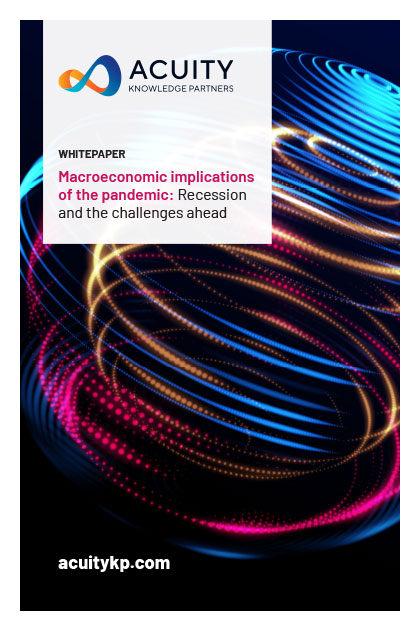
NEW Whitepaper
Macroeconomic implications of the pandemic: Recession and the challenges ahead


Thank you for sharing your Comments
Your file will start downloading automatically
If it does not download within 1 minute,
The COVID-19 pandemic has significantly curtailed economic activity, turning a health crisis into an economic one. The disruption to economic activity has resulted in a fall in commodity prices and a selloff in financial markets, amplifying shocks to the economy. Despite policy measures by countries, the global economy is likely to experience the deepest recession since the Great Depression. This paper looks at how the pandemic has disrupted global economic activity, how a deep recession of this magnitude followed by a slow and partial recovery could alter the structure of the economy and challenges ahead for long-term economic growth.
Key Takeaways
- With per capita GDP contracting in more than 90% of economies and growth estimates been revised down more swiftly and sharply than ever before, the pandemic-induced recession would be the worst recession in history.
- The recovery would be slow and partial, with risks to the downside, given global supply chains could remain impaired even after economies are opened, as efficient resource allocation would take time and confidence among economic agents may remain low, hampering consumption and investment.
- A deep recession of this magnitude and uncertain path to recovery could leave long-lasting scars, with years of output lost in the recession, unemployment remaining higher than pre-crisis levels for a long period and living standards falling.
- Saving and investment behavior of economic agents could change, growth expectations and capacity utilization may drop, and human capital would erode with prolonged unemployment reducing long-term productivity and potential output, leading to lasting implications on growth and investment decision-making.
- As uncertainty looms about how these structural changes will evolve, with considerable variation expected among economies, investment managers would need to monitor economies’ Macroeconomic research fundamentals more closely when making investment decisions.

